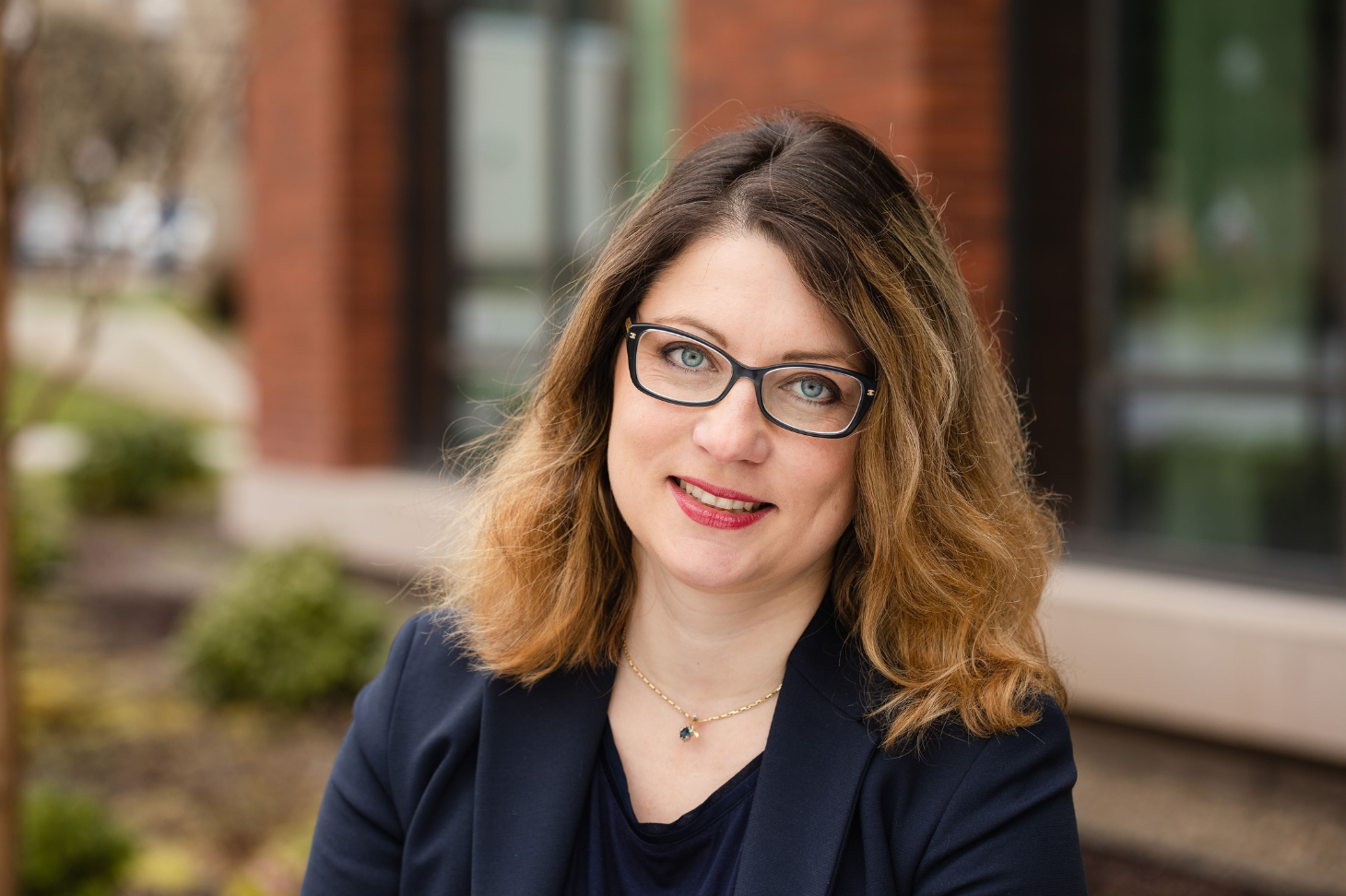News, articles, and interesting stuff from the College of Business
AI Study to Determine Student Learning Outcomes
Will students using AI become more or less confident in their abilities? Over the next year, Violetta Gerasymenko will answer such questions with her research.

Students are taking advantage of the growing power and popularity of artificial intelligence (AI), but little is known about its impact on their learning. Will students using AI become more or less confident in their abilities? Will AI change students’ sense of competence and creativity?
Over the next year, Violetta Gerasymenko, associate professor of entrepreneurship in the College of Business, will answer such questions with support from an OSU Ecampus Research Fellow grant. In winter and spring terms, she will survey students in the BA 260 course, Foundations of the Entrepreneurial Mindset.
“What I mean by the entrepreneurial mindset is the ability of students to think outside the box. It’s the ability to go above and beyond what’s visible when identifying and solving complex problems or issues — and how we can solve these problems in a more effective, more efficient way,” said Gerasymenko.
“We want students to have an open mind and understand what problems they really care about, what touches them, what they would like to solve.”
In the course, Gerasymenko requires students to identify social and economic problems that they would like to address and then to consider possible solutions. Students are encouraged to search broadly for ideas, identify unmet needs, and design innovative business models. They also interview people with a stake in the problem and potential customers of a business created to solve it.
Students who collaborate with AI in completing their assignments may develop increased confidence in their problem-solving skills, Gerasymenko suggested. On the other hand, if students substitute the results of AI for their own judgment, their feelings of competence may drop.
“I’m interested in looking into two components that feed into their entrepreneurial mindset: their creative self-efficacy and entrepreneurial self-efficacy,” said Gerasymenko.
AI could have a positive impact on both of those attributes. It’s possible, she said, that students who use AI to explore problems and potential solutions will develop more options for addressing those problems. That could be especially true for Ecampus students who take classes online and are often in different states or countries than their classmates.
Students’ attitudes toward AI could also be a factor. In talking with her students about AI, Gerasymenko has found a range of opinions. Some students embrace the technology while others are wary. In her study, she suggests that students who have positive attitudes about AI are likely to develop more confidence through their educational experience.
To determine how AI affects student learning outcomes, Gerasymenko and her team of graduate assistants will survey BA 260 students twice, once at the beginning and once end of the course. Participation will be voluntary. The researchers expect to complete their project by the end of 2025.
In the College of Business, Gerasymenko focuses on entrepreneurship and innovation and serves on the board of the OSU Advantage Accelerator. A native of Ukraine, she received her Ph.D. from HEC Paris and regularly advises startup businesses.
-Story by Nick Houtman